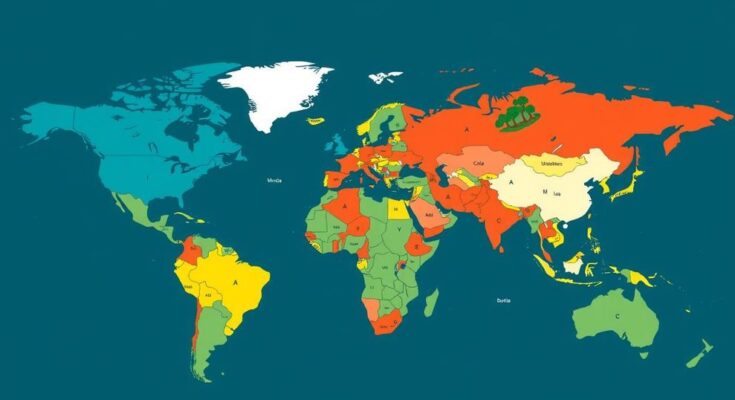Richer nations are beginning to provide financial compensation to poorer ones affected by climate change through a fund aimed at addressing “loss and damage” from extreme weather events, as exemplified by the assistance provided to cyclone victims in Malawi. Despite a pledge of around $720 million, experts warn that this amount will not meet growing needs, necessitating further action and responsibility from wealthier countries at the ongoing COP29 climate summit.
In the wake of Cyclone Freddy, which devastated parts of southern Malawi in 2023, the issue of climate change compensation has gained urgency. This disaster, described as the longest-lasting tropical cyclone recorded, forced subistence farmer Christopher Bingala and his six children to evacuate their home, resulting in a total loss of their property. Fortunately, Bingala received a payment of approximately $750, part of a pioneering effort for “loss and damage” compensation aimed at assisting impoverished nations heavily affected by climate disasters. These funds, arising from agreements made by wealthier nations to support developing countries, strive to address the disproportionate effects of climate change on low-income regions, despite their minimal contribution to global emissions.
Thus far, around $720 million has been pledged by wealthier nations, including the European Union and the United States, for climate-related damages. Experts argue that these funds will be insufficient as climate-induced catastrophes escalate. At the COP29 climate summit, negotiations are ongoing to determine how to distribute this funding within a broader climate finance package, which includes loans and investments. Prime Minister Philip Davis of the Bahamas has called for greater accountability from wealthy countries that benefit from emissions, emphasizing their responsibility toward those suffering from climate change.
The repercussions of Cyclone Freddy were catastrophic, displacing 650,000 individuals in Malawi alone after the storm dumped six months’ worth of rainfall in just six days. Following his family’s displacement, Bingala faced dire food shortages, leading to desperate measures for survival. With the assistance from the funds, the Bingala family could relocate to a more secure area, rebuild their home, and focus on restoring their livelihood, though challenges remain.
The Scottish government has spearheaded the initiative by committing funds specifically for loss and damage, with a non-profit organization, GiveDirectly, tasked with distributing cash grants to affected families. This innovative program has thus far benefited around 2,700 families, providing essential support for rebuilding infrastructures and investing in self-sustaining resources. Yolande Wright from GiveDirectly has highlighted the lack of protections available to low-income households in developing areas, further underscoring the urgent need for robust support systems.
As climate-related events become increasingly severe, the financial demands on vulnerable nations will grow significantly, placing an immense burden on their economic stability. For instance, the Bahamas’ national debt has escalated due to the aftereffects of Hurricane Dorian. Ensuring that the funds are effectively allocated remains a concern, with many advocating for the support to extend beyond mere disaster recovery to encompass comprehensive measures addressing societal and ecological vulnerabilities.
The requirement for loss and damage funding is anticipated to soar, with projections estimating a need for $250 billion annually by 2030. Prime Minister Davis has expressed concern regarding the broader humanitarian implications of inaction, emphasizing that climate crises transcend national borders. In his words, “If they do nothing, they will be the worst for it. When my islands are swallowed up by the sea, then what do my people do?”
This evolving climate finance framework presents both a challenge and an opportunity, urging a collective response to the escalating climate crisis and acknowledging the accountability of nations that contribute to global emissions, ultimately seeking to forge a sustainable path for all nations.
The ongoing negotiations at the COP29 climate summit underscore a critical transition in addressing the needs of developing nations facing the brunt of climate change. As extreme weather events become more frequent and intense, such as Cyclone Freddy, countries with minimal contributions to greenhouse gas emissions, like Malawi and the Bahamas, are grappling with significant recovery challenges. The established fund for loss and damage compensation reflects a commitment from wealthier nations to support vulnerable populations, yet its implementation and adequacy remain in question as climate impacts exacerbate.
In essence, the push for loss and damage compensation highlights the pressing need for wealthier nations to take responsibility for their emissions and their effects on developing countries. The initial financial pledges, while a step towards addressing the climate crisis, may prove insufficient as demands rise. The accountability of developed nations will be instrumental in shaping effective strategies to mitigate the impacts of climate change on vulnerable populations and ensure a sustainable and equitable approach to global climate finance.
Original Source: www.knba.org




